Category: Quantity surveying
The Complete Guide to Quantity Surveying: Career Paths, Skills & Digital Transformation
In the complex world of construction and property development, quantity surveyors play a pivotal role that often goes unnoticed. They’re the financial wizards behind successful building projects, ensuring every penny is accounted for and every resource is optimally utilised.
You’ve probably walked past countless buildings without realising the crucial calculations and cost management that went into their construction. From residential developments to massive infrastructure projects quantity surveyors are the professionals who keep construction budgets in check and projects running smoothly. Their expertise spans everything from initial cost planning to final account settlements making them indispensable in today’s construction industry.
Key Takeaways
- Quantity surveyors are financial experts in construction, managing costs from initial planning through to project completion whilst ensuring optimal resource allocation
- The profession requires specific technical skills including advanced mathematics, construction technology knowledge, and relevant qualifications such as RICS certification
- Modern quantity surveying increasingly relies on digital tools like BIM and specialised software, improving efficiency by up to 60% in tasks like automated takeoffs
- Career progression ranges from graduate roles (£25,000-£35,000) to senior positions (£55,000-£80,000+), with opportunities in both construction industry and consultancy
- Risk assessment and cost control are crucial responsibilities, typically allocating 5-20% contingency based on risk levels and managing budgets across materials (40-50%), labour (30-35%), and equipment (10-15%)
- The field faces current challenges including skills shortages and Brexit impacts, whilst adapting to new trends in sustainability and technological advancement
What Is Quantity Surveying?
Quantity surveying is a specialised profession in construction focused on managing financial elements projects. It combines expertise in construction costs risk assessment value engineering to ensure optimal resource allocation throughout the building process.
Key Responsibilities of a Quantity Surveyor
Quantity surveyors perform essential financial management functions in construction projects:
- Preparing detailed cost estimates forecasts for construction projects
- Creating bills of quantities tender documents
- Analysing financial feasibility studies development options
- Managing cost control procurement processes
- Evaluating contractor claims variations
- Conducting value engineering assessments
- Monitoring project budgets cash flow
- Preparing final accounts contract documentation
Required Skills and Qualifications
Professional quantity surveyors require specific technical competencies:
Technical Skills:
- Advanced mathematics calculation abilities
- Construction technology knowledge
- Contract law understanding
- Cost planning expertise
- Computer-aided design proficiency
- Project management capabilities
- Accredited degree in Quantity Surveying
- RICS (Royal Institution of Chartered Surveyors) certification
- Professional membership with recognised industry bodies
| Career Level | Average UK Salary (£) | Years Experience |
|---|---|---|
| Entry Level | 25,000 – 35,000 | 0-3 |
| Mid-Level | 35,000 – 55,000 | 4-8 |
| Senior Level | 55,000 – 80,000+ | 8+ |
The Role of Technology in Modern Quantity Surveying

Digital transformation revolutionises quantity surveying practices through advanced software solutions data analytics systems. These technological innovations enhance accuracy efficiency productivity in construction cost management.
Building Information Modelling (BIM)
BIM technology creates detailed digital representations of construction projects enabling precise cost estimations resource planning. The system integrates:
- 3D visualisation tools for accurate material quantity takeoffs
- Real-time collaboration features connecting surveyors architects contractors
- Automated clash detection reducing costly construction errors
- Version control systems tracking design changes cost implications
- Data-rich models containing specifications pricing information
Cost Estimation Software
Modern cost estimation software streamlines the quantity surveying process through:
- Automated quantity takeoffs from digital drawings
- Built-in cost databases with current market rates
- Custom templates for standardised estimating procedures
- Integration capabilities with project management tools
- Real-time cost tracking updating mechanisms
| Software Feature | Efficiency Improvement |
|---|---|
| Automated Takeoffs | 60% time reduction |
| Digital Collaboration | 40% fewer errors |
| Real-time Updates | 30% faster reporting |
| BIM Integration | 50% improved accuracy |
These digital tools transform traditional manual processes into streamlined automated workflows increasing productivity reducing human error. The integration between BIM cost estimation software creates a comprehensive digital ecosystem for modern quantity surveying practices.
Career Paths in Quantity Surveying

Quantity surveying offers diverse career progression opportunities across multiple sectors. The profession provides structured advancement paths with increasing responsibilities and specialisation options.
Construction Industry Opportunities
The construction industry presents robust career paths for quantity surveyors through graduated progression levels:
- Graduate/Junior Quantity Surveyor: Entry-level positions focus on core tasks:
- Contract management
- Cost forecasting
- Procurement processes
- Project profit monitoring
- Quantity Surveyor/Senior Quantity Surveyor: Advanced roles include:
- Independent project management
- Commercial project oversight
- Sector specialisation (highways rail water)
- Team leadership responsibilities
Consultancy and Private Practice
Private practice offers alternative career routes focused on advisory services:
- Consultancy Roles:
- Client-side cost management
- Project feasibility studies
- Risk analysis services
- Value engineering expertise
- Practice Development:
- Building client portfolios
- Specialised sector focus
- Strategic project planning
- Commercial relationship management
| Career Level | Key Responsibilities | Required Qualifications |
|---|---|---|
| Graduate | Contract Management, Cost Forecasting | Bachelor’s Degree in Quantity Surveying |
| Senior | Project Management, Team Leadership | Degree + 5+ Years Experience |
| Consultant | Advisory Services, Strategic Planning | Professional Certification + Industry Experience |
The career structure provides clear advancement pathways through technical expertise development or management progression.
Project Cost Management and Control
Quantity surveyors carry out systematic approaches to manage construction project costs through detailed planning analysis risk assessment. Their expertise ensures projects remain within budget while maintaining quality standards.
Cost Planning and Analysis
Cost planning forms the foundation of effective project management through precise estimation techniques. Here’s how quantity surveyors approach cost planning:
- Initial Cost Estimates: Create detailed cost breakdowns for materials labour equipment based on current market rates
- Budget Development: Establish comprehensive budgets incorporating direct costs indirect costs contingency allowances
- Cost Monitoring: Track actual expenditure against planned costs using specialised software systems
- Variance Analysis: Compare planned versus actual costs to identify discrepancies requiring corrective action
| Cost Component | Typical Percentage of Total Budget |
|---|---|
| Materials | 40-50% |
| Labour | 30-35% |
| Equipment | 10-15% |
| Overhead | 5-10% |
Risk Assessment Methods
Quantity surveyors employ systematic risk assessment techniques to protect project finances:
- Qualitative Analysis:
- Review historical project data
- Evaluate market conditions
- Assess contractor capabilities
- Examine site conditions
- Quantitative Methods:
- Monte Carlo simulations
- Sensitivity analysis
- Decision tree analysis
- Risk matrices
- Risk Mitigation Strategies:
- Fixed-price contracts
- Insurance coverage
- Performance bonds
- Contingency allocation
| Risk Category | Typical Contingency Allocation |
|---|---|
| Low Risk | 5-10% |
| Medium Risk | 10-15% |
| High Risk | 15-20% |
Each risk assessment component integrates with cost planning to create comprehensive project control mechanisms.
Legal and Contractual Aspects

Quantity surveyors manage the legal framework of construction projects through contract administration and dispute resolution processes. These professionals ensure compliance with regulations while protecting the interests of all parties involved.
Construction Contracts
Construction contracts form the foundation of project relationships and responsibilities in quantity surveying. A typical construction contract includes:
- Contract Documentation: Primary documents such as tender submissions, bills of quantities, drawings, specifications, and payment schedules
- Terms and Conditions: Specific clauses covering project scope, timelines, payment terms, variations, and quality standards
- Performance Requirements: Measurable benchmarks for work quality, safety standards, and completion milestones
- Risk Allocation: Clear designation of responsibilities and liabilities between parties
The quantity surveyor’s role in contract management involves:
- Drafting contract documents with precise terms
- Reviewing contractor submissions for compliance
- Monitoring contractual obligations throughout the project
- Processing variations and claims according to contract terms
Dispute Resolution
Dispute resolution in quantity surveying focuses on addressing conflicts efficiently while maintaining project momentum. Common dispute resolution methods include:
- Mediation: A neutral third party facilitates negotiations between disputing parties
- Adjudication: An independent expert reviews evidence and makes binding decisions
- Arbitration: Formal proceedings with legally binding outcomes
- Expert Determination: Technical specialists resolve specific issues
- Maintaining detailed project records
- Implementing clear change order procedures
- Conducting regular contract compliance reviews
- Documenting all communications and decisions
| Dispute Type | Average Resolution Time | Success Rate |
|---|---|---|
| Mediation | 4-6 weeks | 85% |
| Adjudication | 28-42 days | 75% |
| Arbitration | 6-12 months | 90% |
Future Trends in Quantity Surveying
Quantity surveying faces significant transformation driven by technological innovation and industry demands. The profession adapts to meet evolving construction sector needs through sustainable practices digital solutions.
Demand and Shortage
The UK construction industry experiences a notable shortage of qualified quantity surveyors. This shortage stems from:
- Brexit impacts on workforce mobility
- An aging professional population reaching retirement
- Limited graduate recruitment into the field
| Factor | Impact on Industry |
|---|---|
| Current Shortage | High demand for QS services |
| Brexit Effect | Reduced EU workforce access |
| Age Demographics | 30% of QS professionals over 50 |
Technological Advancements
Modern quantity surveying integrates cutting-edge technologies that enhance efficiency precision. Key technological developments include:
- AI systems for automated quantity takeoffs cost calculations
- Advanced analytics tools for improved project forecasting
- BIM integration for precise 3D measurement cost modelling
- Cloud-based collaboration platforms for real-time project updates
Sustainable Construction Practices
Sustainability transforms quantity surveying through enhanced cost management environmental considerations. Key sustainable practices include:
- Life cycle costing for long-term environmental impact assessment
- Carbon footprint calculations in project budgeting
- Green building certification cost management
- Renewable material cost analysis implementation
- 5D BIM implementation for cost time management
- Mobile applications for on-site quantity takeoffs
- Blockchain technology for transparent contract management
- Internet of Things (IoT) sensors for real-time cost tracking
| Digital Tool | Primary Function |
|---|---|
| 5D BIM | Cost dimension integration |
| Mobile Apps | Field data collection |
| IoT Sensors | Real-time monitoring |
Conclusion
Quantity surveying stands as a dynamic and evolving profession that’s essential to the construction industry. The role combines technical expertise financial management and legal knowledge to deliver successful construction projects.
The future of quantity surveying looks promising with technological advancements and sustainable practices reshaping traditional methods. As the industry continues to grow the demand for skilled quantity surveyors remains high offering excellent career prospects and competitive salaries.
Whether you’re considering a career in quantity surveying or looking to hire professional services understanding the vital role these experts play will help you make informed decisions about your construction projects. Their expertise ensures that your projects stay on budget maintain quality and meet all necessary regulations.
Frequently Asked Questions
What is a quantity surveyor?
A quantity surveyor is a construction industry professional who manages the financial aspects of building projects. They handle cost planning, budgeting, and resource allocation whilst ensuring projects remain financially viable. Think of them as financial architects who bridge the gap between construction costs and project delivery.
What qualifications do I need to become a quantity surveyor?
To become a quantity surveyor, you’ll need an accredited degree in Quantity Surveying and RICS (Royal Institution of Chartered Surveyors) certification. Strong mathematical skills, knowledge of construction technology, and understanding of contract law are essential. Professional membership in recognised industry bodies is also recommended.
What is the average salary for quantity surveyors in the UK?
Quantity surveyors in the UK can expect to earn between £25,000 and £80,000+ annually, depending on experience and role. Entry-level positions typically start at the lower end, while senior positions and consultancy roles command higher salaries. Location and sector also influence earning potential.
How is technology changing quantity surveying?
Technology is revolutionising quantity surveying through Building Information Modelling (BIM), advanced cost estimation software, and data analytics. These tools enable more accurate cost estimations, automated quantity takeoffs, and real-time project monitoring. Digital transformation has significantly improved workflow efficiency and reduced human error.
What are the main responsibilities of a quantity surveyor?
Key responsibilities include preparing cost estimates, creating bills of quantities, managing tender documents, conducting feasibility studies, overseeing procurement processes, evaluating contractor claims, and monitoring project budgets. They also handle contract administration and dispute resolution when needed.
How do quantity surveyors manage project costs?
Quantity surveyors manage costs through detailed planning, analysis, and risk assessment. They develop initial cost estimates, create budgets, monitor expenditure, and perform variance analysis. They also implement risk mitigation strategies and maintain contingency allocations to ensure project financial success.
What career progression opportunities exist in quantity surveying?
Career progression typically moves from Graduate/Junior Quantity Surveyor to Senior Quantity Surveyor and beyond. Professionals can advance through technical expertise development or management roles. Consultancy positions offering advisory services are also available, providing diverse career pathways.
How does BIM technology benefit quantity surveying?
BIM technology provides detailed digital representations of construction projects, enabling precise cost estimations and resource planning. It facilitates better collaboration, improves accuracy in quantity takeoffs, and allows for real-time cost tracking. This integration leads to more efficient project delivery and cost management.
